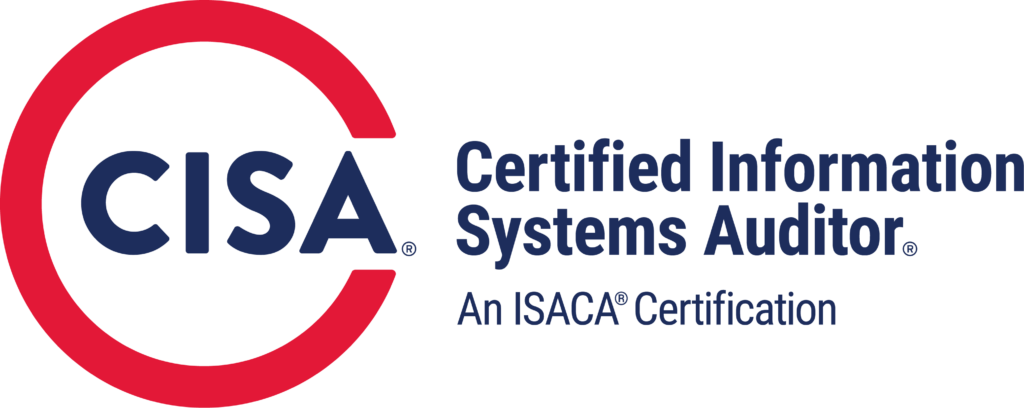In a world where auditors play a crucial role, the Certified Information Systems Auditor (CISA) certification stands as the global standard for professionals in information systems. Whether you’re an aspiring auditor or seeking to validate your expertise in security controls, CISA empowers you to analyze information systems and enhance risk management processes. Let’s explore the significance of CISA and its impact on your career.
What Is CISA?
CISA, offered by ISACA, certifies professionals who specialize in auditing, control, and security within information systems. It’s not just about passing an exam; it’s about demonstrating your ability to apply a risk-based approach to audit engagements. As technology evolves, CISA ensures that IT audit professionals stay current with emerging trends like AI and blockchain.
Who Should Pursue CISA?
CISA is ideal for those who aspire to:
- Excel in security auditing
- Validate their knowledge and skills in security controls
- Analyze information systems to improve risk management processes
Why CISA Matters
70% Experienced On-the-Job Improvement: CISA holders enhance their abilities to handle modern IT auditing challenges. 22% Received a Pay Boost: CISA certification opens doors to better compensation and career growth.

CISA Domains
Domain 1: Information system auditing process (21% of the exam) This domain covers the core principles and methodologies of conducting effective information system audits. It equips you with the skill set to assess risks, evaluate controls, and identify vulnerabilities within an organization’s IT infrastructure. Mastering this domain is crucial for ensuring organizational compliance, data security, and overall system reliability. Key topics and skills covered:
- IS audit standards and frameworks (COBIT, ISACA’s Auditing Standards)
- Risk assessment methodologies (quantitative, qualitative)
- Audit planning, execution, and reporting
- Evidence collection, analysis, and communication
- Internal controls evaluation and effectiveness testing
- IT compliance with relevant regulations (GDPR, CCPA)
Domain 2: Governance and management of IT (16% of the exam) This domain focuses on the strategic aspects of IT governance and its alignment with organizational objectives. You’ll gain insights into establishing effective leadership, developing robust policies and procedures, and ensuring efficient resource management within the IT department. Key topics and skills covered:
- IT governance frameworks (COSO, COBIT)
- Risk management principles (ERM, BCM)
- IT policy and procedure development
- IT resource allocation and optimization
- Business continuity planning and disaster recovery
- Performance measurement and KPIs for IT
- IT service management frameworks and best practices
Domain 3: Information systems acquisition, development, and implementation (18% of the exam) This domain equips you with the knowledge and skills to navigate the life cycle of information systems, from selecting vendors and managing projects to implementing and testing new technologies. Mastering this domain ensures secure and efficient systems development that aligns with business needs. Key topics and skills covered:
- IT procurement strategies and vendor selection
- Project management methodologies (Agile, Waterfall)
- Secure coding practices and vulnerability management
- System development methodologies (SDLC)
- IT change management and configuration management
- Testing and evaluation of new systems
Domain 4: Information systems operations and business resilience (20% of the exam) This domain focuses on the operational aspects of IT, emphasizing the importance of maintaining service levels, managing incidents, and ensuring business continuity. You’ll learn how to implement effective security controls, monitor system performance, and respond to cyber threats efficiently. Key topics and skills covered:
- IT service management practices (ITIL)
- Security operations and incident response
- Business continuity planning and disaster recovery
- System monitoring and performance analysis
- Access control and identity management
- Data backup and recovery procedures
- Cybersecurity best practices and incident response
Domain 5: Protection of Information Assets (25% of the exam) This domain covers the critical aspects of safeguarding information assets from unauthorized access, use, disclosure, disruption, modification, or destruction. You’ll gain expertise in data security, identity management, and encryption technologies to protect sensitive information and comply with relevant regulations. Key topics and skills covered:
- Data security principles and best practices
- Access control mechanisms and identity management
- Encryption and data loss prevention technologies
- Security incident management and forensics
- Privacy and information security laws and regulations
- BYOD and cloud security risks and mitigation strategies
How Much Does CISA Certification Cost?
Exam Registration Fees:
- ISACA Members: $575.00
- Non-Members: $760.00
Conclusion
Elevate your skills, validate your expertise, and become a CISA-certified professional. Join the ranks of those who shape resilient organizations and navigate the complexities of information systems. 🌟🔒
Thanks for sharing
Hi Securityforyou,
I see you write good content.
Can you please explain the difference between a BCP and DR?
Sometimes people use it interchangeably.
Will be helpful.
Thanks in advance.
Great